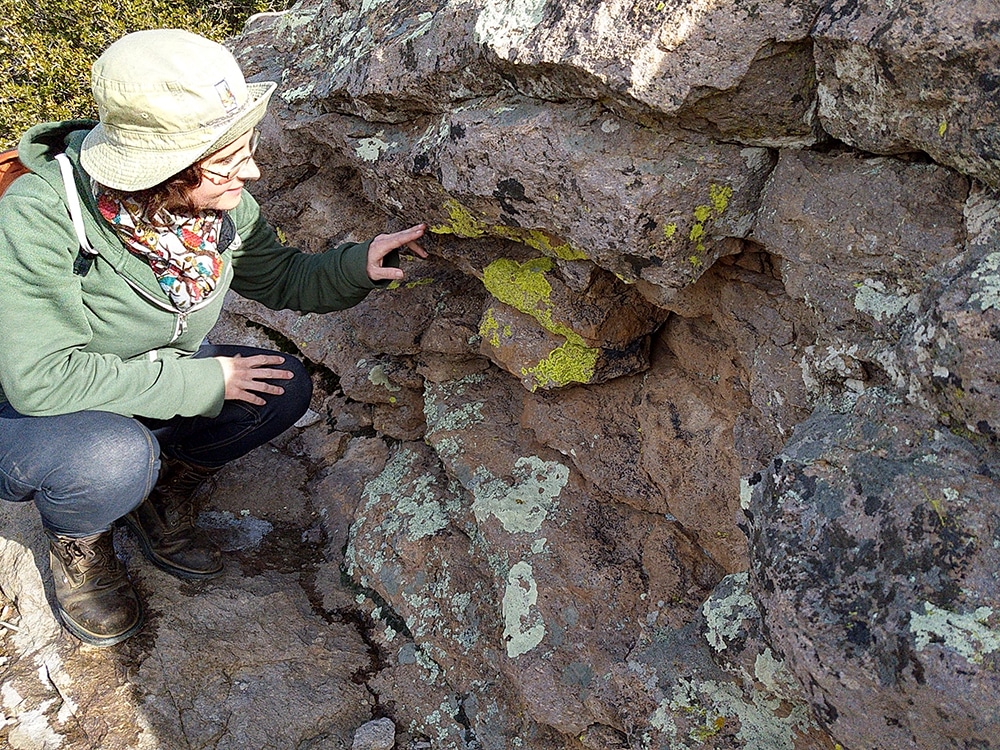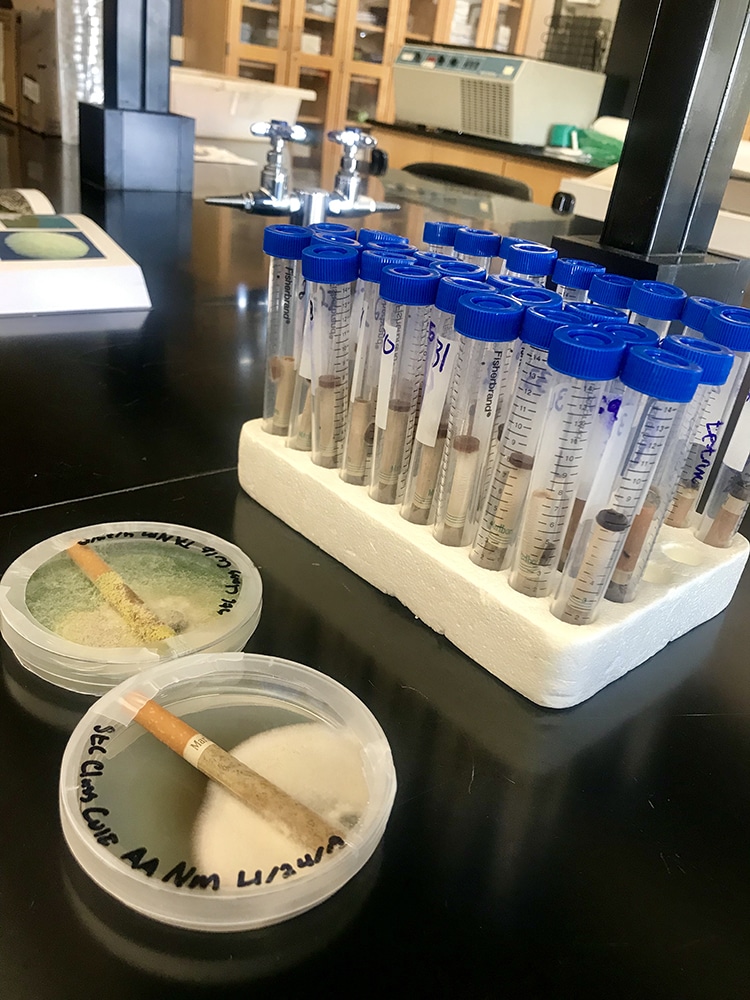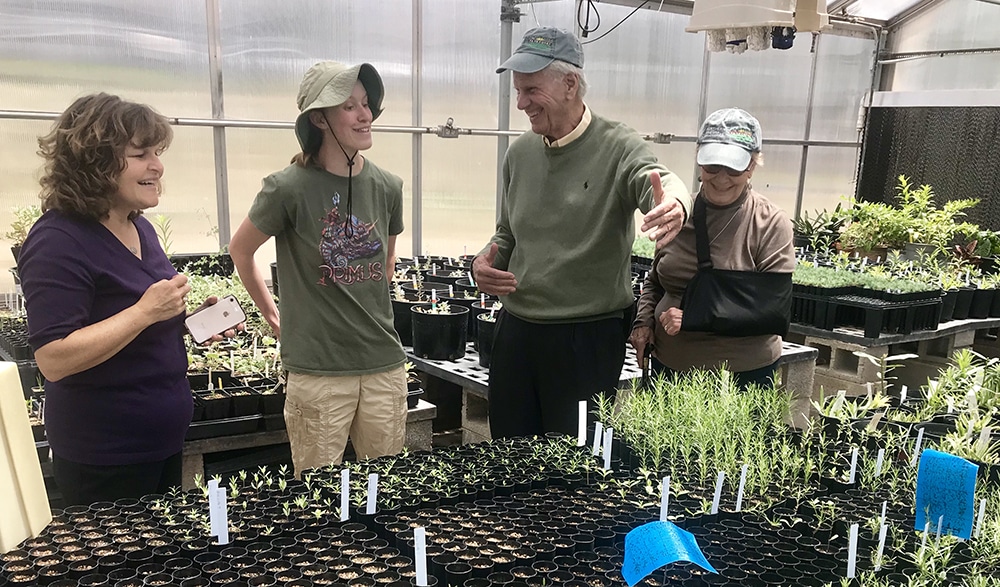John and Pit Lucking, who have a long history of supporting NAU, made a generous gift to the NAU Foundation in 2018 to establish a professorship that would create educational and research opportunities for NAU students. Little did they know then, but the John and Pit Lucking Family Professorship would grow into something that would transform students’ lives in big and small ways.
The professorship provides discretionary funding to advance the work of an NAU professor. The Lucking Family Professorship is held by Catherine “Kitty” Gehring, who studies soil microbes and how they might be used to meet challenges ranging from reforestation to trash.
“I and my entire lab group are very grateful to Dr. and Mrs. Lucking not only for their generous support but also for their interest and enthusiasm for the work we are doing,” said Gehring, a professor in the Department of Biological Sciences and co-director of the Center for Adaptable Western Landscapes. “Their generosity has helped launch new projects that are engaging students and making a difficult year a bit more enjoyable.”

As the result of the professorship, biology master’s student Gillian Trimber received a semester-long assistantship to support her research, which seeks to develop methods for growing pinyon and juniper seedlings for restoration. Pinyon-juniper woodlands are struggling with high mortality rates owing to increasing levels of drought and fire.
“I am extremely grateful to be involved in research that has the potential to address serious problems resulting from climate change in the Southwest,” Trimber said. “With support of the Lucking Family Professorship, I’m able to work directly on issues that I care about and contribute to wider efforts to preserve pinyon-juniper woodlands.”
Through the assistantship, Trimber is assisting with two research projects. The first project is a partnership with Navajo Technical University and the Forest Service to examine how soil fungi can help pinyon pines overcome drought. The second project is a collaboration that will investigate the use of soil microbes to improve post-fire re-establishment of pinyons and junipers on Mesa Verde National Park and Ute Mountain Ute lands.

Students enrolled in the mycology course benefited from additional living specimens of mushrooms and other fungi that filled the lab with wonder and some much-needed laughter during the ongoing pandemic. During the class, students were able to undertake studies examining cigarette butt decay using different species of fungi, with the goal of finding fungi that can break down the butts, including the plastic filters.
The Center for Adaptable Western Landscapes was established in May to promote robust scientific research to enhance sustainable management of ecological populations, communities and landscapes and develop solutions to ecological problems across the American Southwest and Colorado Plateau.
Lara M. Schmit
Center for Adaptable Western Landscapes




